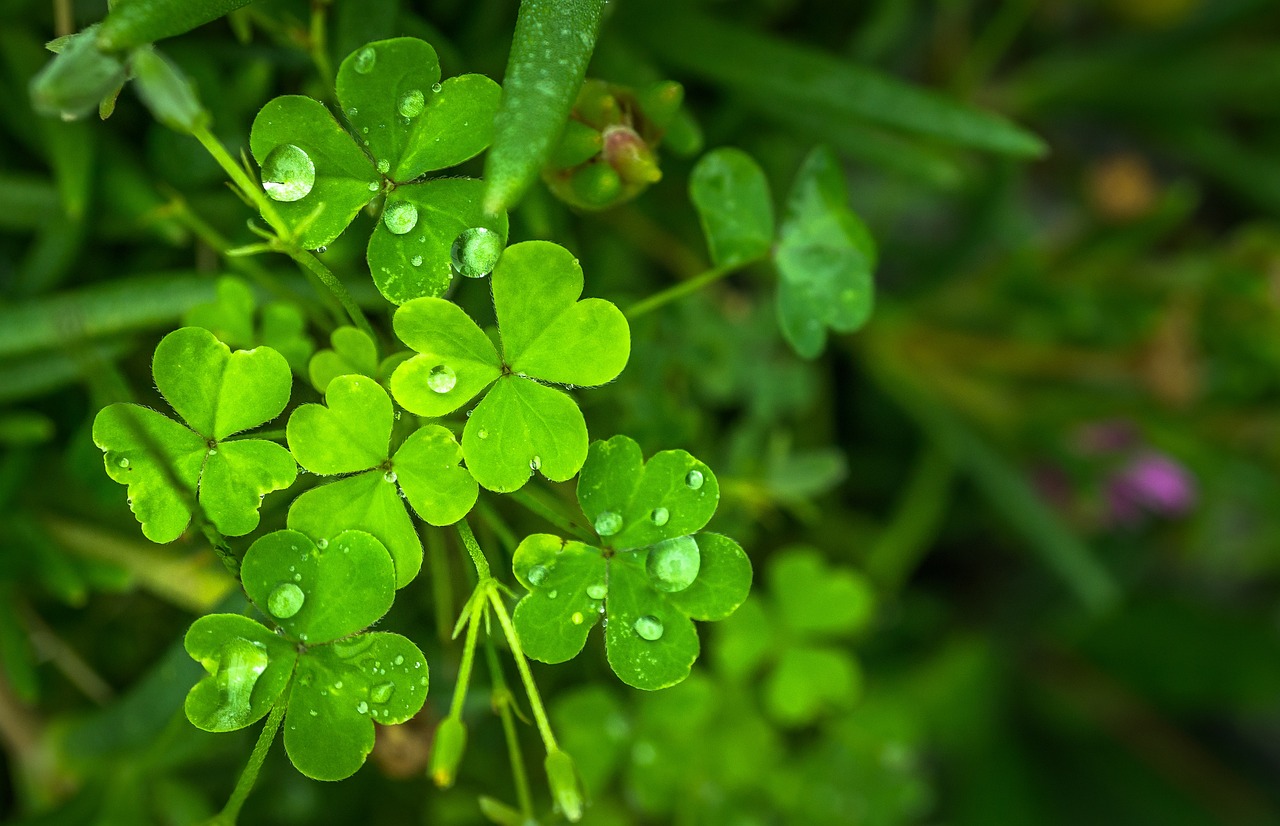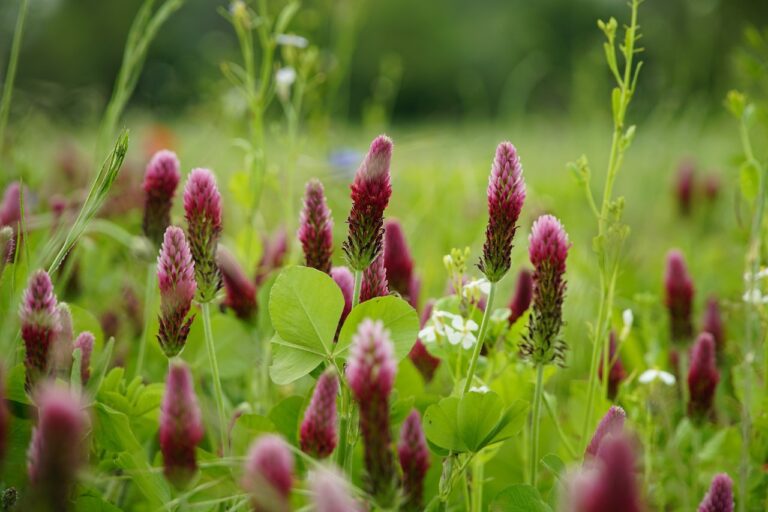
Clover has been used in agriculture for many years as a valuable forage crop for livestock and cover crop for soil conservation. It is grown for its dense foliage, high protein content, and nitrogen-fixing abilities. However, clover also plays a crucial role in wildlife habitat improvement and management. The benefits of clover are not limited to one species or habitat type. Clover positively impacts a broad range of wildlife, improves soil health, and aids in providing healthier ecosystems.
Wildlife Benefits
Clover is a valuable food source for many wildlife species. Whitetail deer and wild turkey, in particular, rely on clover as an essential and nutritious part of their diet. Clover provides a high protein alternative for wildlife compared to traditional crops and forages. Due to its nutrient-dense nature, it helps increases antler production among deer and egg production among turkey and game birds.
Clover serves as a desirable source of nutrition and is easily digestible. This makes it particularly useful during the fawning and hatching periods in spring. It is an effective source of protein and crucial minerals that wildlife require for optimal growth and immunity such as aluminum, Vitamin C, iron, and others.
Clover provides cover for fawns during the day and provides a soft place to sleep. During late spring and early summer, clover plots are often lush with growth and flowers. Fawns can easily lay in the middle of the food plot and “disappear” from predators looking out into the clover plot. The stems and leaves of clover also provide great cover for turkey poults traversing through them.
Soil Health
Clover is a nitrogen-fixing plant; its unique structure allows it to convert nitrogen from the atmosphere into a usable form that is easily absorbed by plants. Through this process, clover produces more nitrogen per acre than any other crop, making it an effective option for organic fertilization.
Clover’s root system is an essential part of its ability to promote soil health. The roots are dense, deeply penetrating, and help to break up compacted soil. This improves the texture and structure of the soil. By increasing soil organic matter, the soil is allowed to hold more water; this reduces runoff and erosion. Soil that has high organic matter typically has a crumbly texture, which allows for better drainage and water retention. Additionally, clover suppresses weed growth and erosion, promoting overall soil health and productivity for food plots.

Habitat Management
Clover is a powerful tool for habitat management. Planting clover can improve the health of crop fields, pastures, and wildlife habitats. For example, farmers often plant clover (or a seed mix with clover) as a cover crop to improve soil health, add nitrogen, and reduce diseases and erosion. Similarly, planting clover in wildlife food plots can provide the same benefits to hunters, habitat managers, and land conservationists.
Another way clover is beneficial for food plot production is its ability to grow in low light environments. This characteristic is useful when managing woodland habitats, where plants do not receive full sunlight. This makes clover a more viable option for woodland food plots compared to other common seed varieties. Notably, certain varieties of clover species actually prefer shaded or partly shaded environments making them wise choices for your food plots where tree canopy is nearby. At Wildlife Nurseries and Seed, we understand this concept and select clover varieties for our clover blend that perform well under these conditions.
Planting Clover
Clover is a versatile plant – it can grow in a wide range of soils and environmental conditions. Clover varieties have different tolerances of environments and soil conditions. Some have wider tolerances and other varieties need a narrowed window of factors to grow well.
Food plot sites can vary drastically and often do not have optimal site conditions. Hunters and land managers are often limited on options for where to put food plots which cause a higher density of plots in locations with low soil quality, varying pH levels, tree cover, and wet to moist soils. Due to this, it is important to carefully consider what clover varieties you plant. Wildlife Nurseries & Seed intentionally selects clover varieties that tolerate a broad range of site conditions to promote a higher success rate of growth. This aids in providing an adequate solution for hunters and land managers that gives them a higher chance of successful food plots.
For best results, it’s always recommended to collect a soil sample and submit it to a reputable laboratory for analysis and recommendations for each food plot.
Conclusion
In summary, clover has many benefits in wildlife habitat management and is a crucial tool for maintaining healthy ecosystems. It is a versatile plant, that provides nutritional value to many wildlife species, fixes nitrogen in the soil, and improves soil health. There are many clover varieties to choose from. Carefully selecting proper clover varieties can aid in producing quality food plots that benefit wildlife, soil health, and the overall ecosystem and habitat at your property.